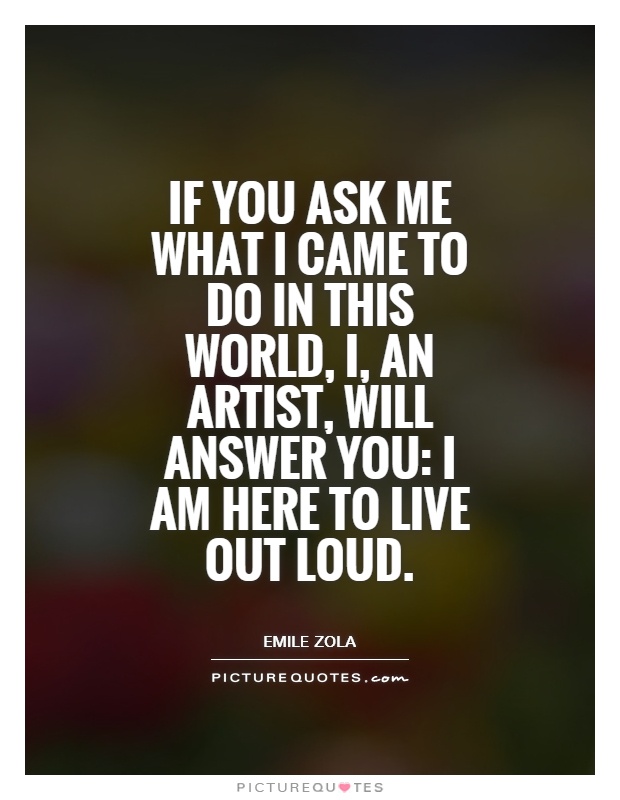If you ask me what I came to do in this world, I, an artist, will answer you: I am here to live out loud

Inspirational QuotesInspiring QuotesInspirational Quotes About LifeLive QuotesCarpe Diem QuotesArtist Quotes
If you ask me what I came to do in this world, I, an artist, will answer you: I am here to live out loud
Emile Zola, a prominent French writer and journalist, is often remembered for his bold and controversial works that challenged societal norms and conventions. He was a key figure in the literary movement of naturalism, which sought to depict life as it truly was, without romanticizing or idealizing it. Zola believed in the power of art to provoke thought, inspire change, and ultimately, to make a difference in the world.The quote, “If you ask me what I came to do in this world, I, an artist, will answer you: I am here to live out loud,” perfectly encapsulates Zola’s approach to his craft. For him, being an artist meant more than just creating beautiful works of art; it meant using his voice and his platform to speak out against injustice, to challenge the status quo, and to advocate for social change. Zola believed that art had the power to shape public opinion, to raise awareness about pressing issues, and to inspire people to take action.
Throughout his career, Zola fearlessly tackled controversial subjects such as poverty, class inequality, and political corruption. His most famous work, the twenty-novel series “Les Rougon-Macquart,” explored the impact of heredity and environment on human behavior, and delved into the lives of ordinary people struggling to survive in a rapidly changing society. Zola’s writing was raw, gritty, and unapologetically honest, earning him both praise and criticism from his contemporaries.
Zola’s commitment to living out loud extended beyond his literary work. He was actively involved in political and social causes, using his influence to advocate for justice and equality. In 1898, Zola famously penned an open letter titled “J’accuse,” in which he accused the French government of anti-Semitism and corruption in the wrongful conviction of Captain Alfred Dreyfus. The letter sparked a national debate and ultimately led to Dreyfus’s exoneration.












 Friendship Quotes
Friendship Quotes Love Quotes
Love Quotes Life Quotes
Life Quotes Funny Quotes
Funny Quotes Motivational Quotes
Motivational Quotes Inspirational Quotes
Inspirational Quotes